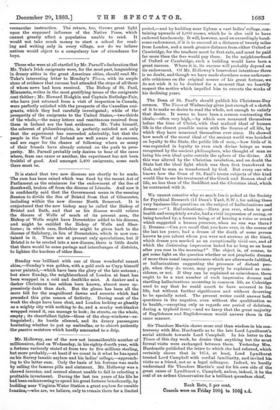The Dean of St. Paul's should publish his Christmas-Day sermon.
The Times of Wednesday gives just enough of a sketch of it to make us desire to read the whole, not enough to satisfy that desire. It seems to have been a sermon contrasting the ideals,—often very high,—by which men measured themselves before the time of Christ, with that realised ideal of human. life in the closest possible union with the Source of all life, by which they have measured themselves ever since. He showed how much of the moral ideal of the ancient world was lavished on loyalty to the State, the public life of men,—how little of it was expended in loyalty to even such divine beings as were recognised by the ancient philosophers, who thought of man as being his own ideal quite outside the sphere of the divine. All this was altered by the Christian revelation, and no doubt the State lost the ideal light which was then first transferred to God, and to man as transformed by God. But every one who knows how the Dean of St. Paul's treats subjects of this kind would like to see his treatment of the Greek and Roman ideal of life, no less than of the Buddhist and the Christian ideal, which he contrasted with it.


































 Previous page
Previous page